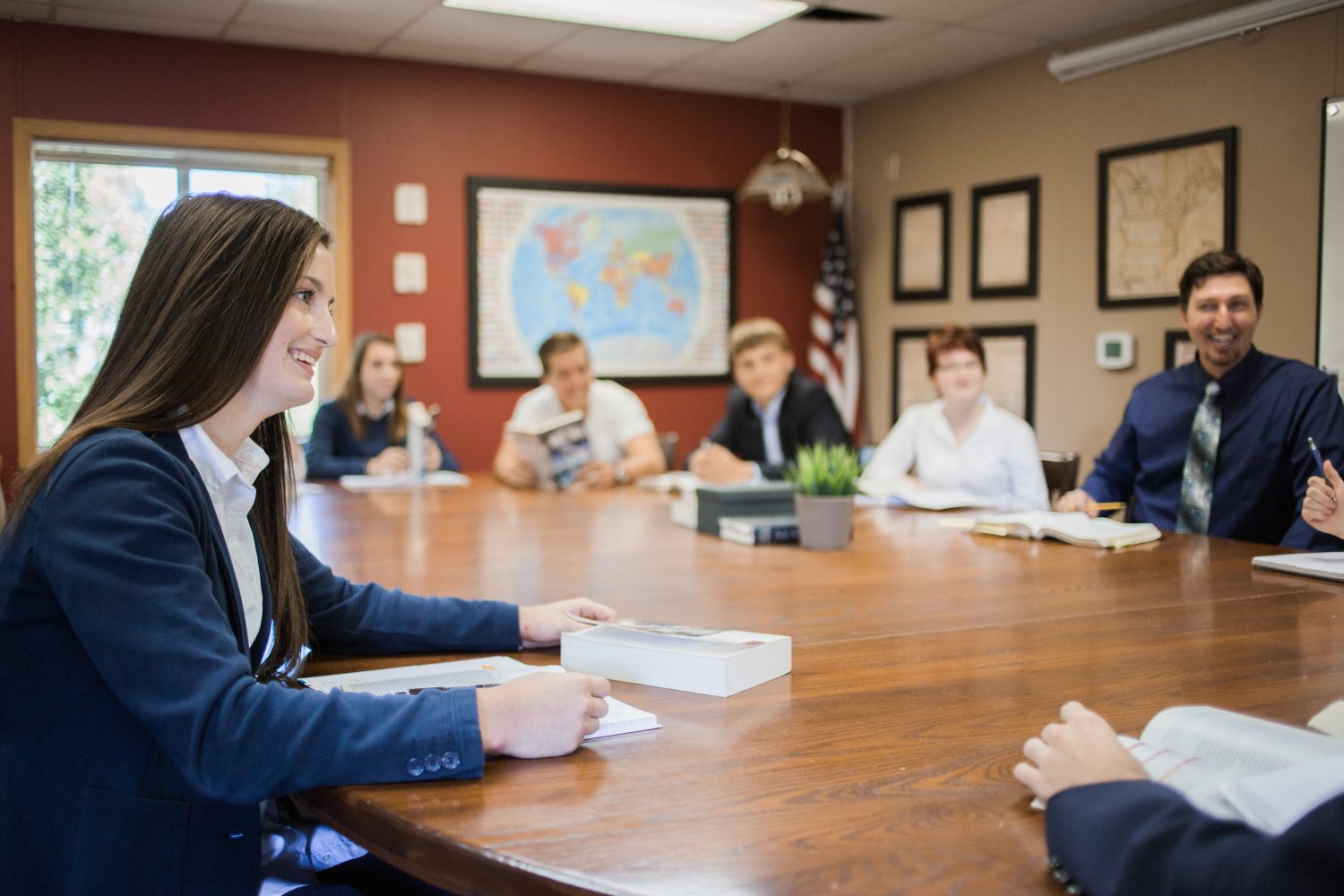What does it mean to be a classical Christian school in the ACCS?
“Education is not a subject, and it does not deal in subjects. It is instead the transfer of a way of life.”
– G.K. Chesterton
Objective | Methods | Curriculum | School Environment
What is CCE?
Many educators view school as a mechanism that delivers content using an educational method. This results in the mistaken belief that “Classical Christian Education” (CCE) simply means that the content is classical and the methodology is more traditional.
CCE has deep footings that are distinct from modern schools, and even different from liberal arts or classical schools founded after the Enlightenment. There is no single recipe or formula for Classical Christian education. It is a way of educating children that developed in the Middle Ages as an outworking of classical Greco-Roman thought and Christianity. It flourished in the Reformation and thus has a rich and varied form. It starts with a different purpose and ends with different results than conventional education.
This page summarizes the essential elements of CCE. For a more exhaustive explanation, refer to our What is CCE? and Reading List pages.
Before the mid-eighteenth century, Christian paideia was the purpose of nearly all Western education. This was based, in part, on Ephesians 6 that commands fathers to raise their children in “the Παιδεια (paideia) of the Lord.” It seeks an inner transformation of the student. It cultivates the students’ habits of thought and action in order to view the world with certain foundational truths and thereby align their desires with God’s ideal. Classical Christian education’s objective, then, is to shape the virtues and reason so that they will be in line with God’s will. In other words, our objective is to cultivate a Christian paideia in students.
College preparation is not an end in itself, but can often result because most colleges are built on a Western model that reveres language and reasoning. CCE graduates are eager to learn and have excellent faculties in language and reasoning. Thus, college is a natural outworking of CCE. But, the chief end of education is to prepare students to worship and glorify God.
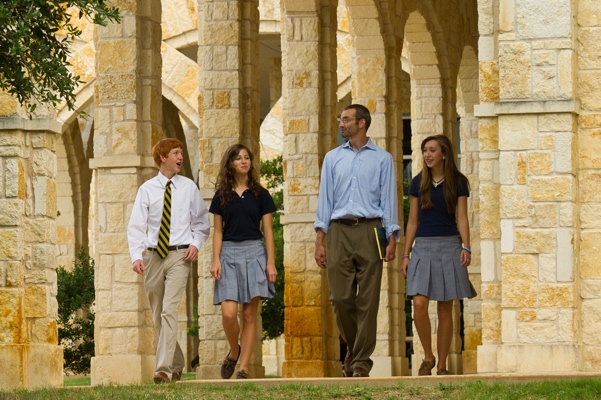
The ideal graduate of a Classical Christian school should be marked by a noticeable refinement of manner and intellect. He will be first and foremost committed to his Christian purpose in life, and will love and live the Christian virtues. He will be competent in language, mathematics, natural philosophy (science), philosophy, and theology, and be prepared and interested in studying them further. He will think well, with Christian presuppositions in all areas of his life. He will be wise and full of humility. He will love to learn and will seek to learn throughout his life.
The end then of learning is to repair the ruins of our first parents by regaining to know God aright, and out of that knowledge to love him, to imitate him, to be like him, as we may the nearest by possessing our souls of true virtue, which being united to the heavenly grace of faith makes up the highest perfection.
– John Milton
- The Trivium & Quadrivium: These three arts of the Trivium—grammar, logic, and rhetoric—are the Western tradition for learning and language study. Combined with the four arts of the Quadrivium, we aim to teach according to the liberal arts tradition.
- Integration of content: Integration reveals the unity of God’s world, so CCE schools value integration of content like history, literature, science, math, composition, language, etc. Some CCE schools teach multiple subjects in the same class to create a unity of understanding. Others integrate in a more conventional classroom organized by discipline or subject.
- Focus: Classical schools focus students on learning fewer things well. Classical Christian education was not dismissed, it was pushed out. When good coursework or methods are brought in, they replace great coursework and classical methods, and compete for the focus of the students.
We tend to study all our disciplines in unrelated parallel lines. This tends to be true in both Christian and secular education. This is one of the reasons why evangelical Christians have been taken by surprise at the tremendous shift that has come in our generation.
– Francis Schaeffer
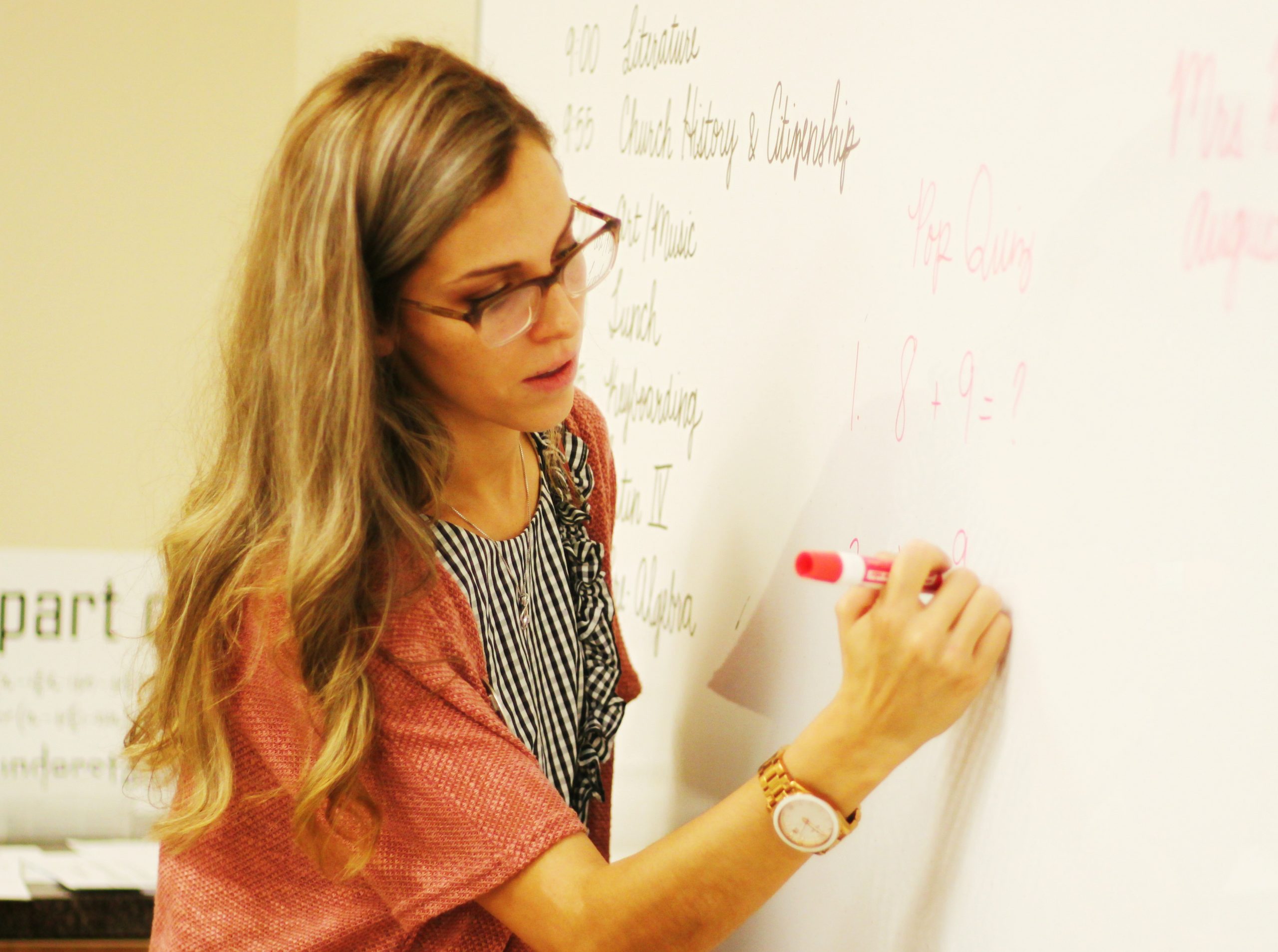
- Good Teachers: A good teacher is first a Christian, then a scholar, then a teacher. Some have formal graduate degrees in traditional scholarly fields. Others gained their scholarship informally. The student will become like the master. Those who teach artistry in some form must be masters of their craft, if they are to train masters. Specialized training in teaching, while valuable, is of secondary importance. Teaching is a spiritual gift and should be recognized as such. Teachers of young students (K-6) are nurturers, but should also be scholars and learners. The level of scholarship required for the teacher increases in the secondary.
- Imitation and practice: We teach many skills and habits as they form in students during their school years. First we teach habits as a form, then through imitation, and then through repeated practice toward mastery.
- Recitation: Memory work such as great oratory, poetry, and virtue sayings are trained through recitation in grammar school and beyond. These advance the student’s vocabulary and aesthetic, and embed virtuous ideas.
- Socratic discussion: We train students in the art of reason and argument through dialog (often around a table). Students challenge ideas and work from the greatest literary sources under the guidance and mediation of the teacher. In this, we train students to submit to, internalize, harmonize, align with, and accept God’s truth—not individual, subjective “truths.”
- Assessment: Our goal is to assess humanely, not mechanically. Our assessment recognizes that ideas, understanding, and thought are more important than mere information. Christian virtue lived out is also recognized. For example, hard work and humility are weighed in assessing a student—not just mastery—in accordance with the parable of the talents. Traditional grades, however, are a measure to communicate mastery to outside entities. We respect the integrity of academic performance in grading. Persuasive speaking and writing are supported in various ways, including oral testing, discussion rubrics, one on one engagements, and presentations.
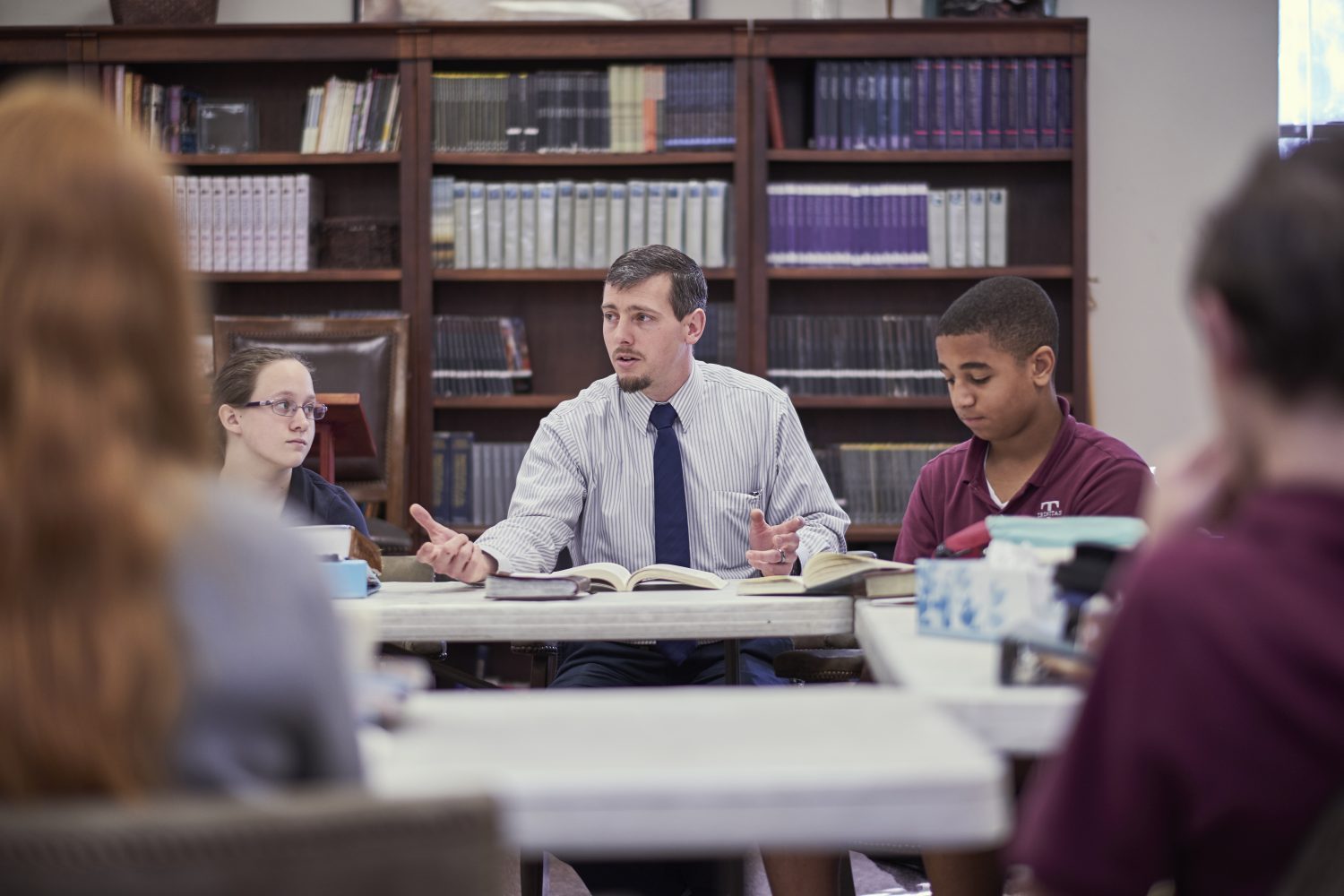
We study our physical universe, and then reach beyond it into transcendent truth about the Creator through philosophy and theology. Rather than viewing subjects as an end in themselves, we approach all learning with a love of knowledge (philosophy) and the love and study of God (theology), and we live these loves before students.
- Latin & Greek: We study Latin as the language of the church and theology, and some schools study Greek as the language of Scripture and early Western texts. Knowledge of these languages is necessary for students to enter the thinking of the classical and early church era. Inflected language, like Latin or Greek, opens the mind to an incomparable way of thinking, thus opening new depth in the student’s paideia. Studying these grammars helps a student better understand his own, and the vocabulary prompts students think deeply about what their own words mean. Some also study Hebrew or European languages for the academic study of original texts. Other modern languages, when studied at Classical Christian schools, are pursued for other valuable, but secondary purposes.
- Persuasive writing & thesis: We base our writing and speaking in the ancient Greek and Roman training in rhetoric. Rhetoric is the art of persuasion, not to be confused with speech, debate, composition, or any other subcomponents of it. The defense of at least one rhetorical thesis before graduation typically completes the K-12 classical experience. (Depending on the school, sources may include the progymnasmata, the five canons of rhetoric as described in Cicero’s Rhetorica ad Herennium, and Aristotle’s On Rhetoric.)
- Great children’s books: Grammar school students read higher, excellent literature, mainly from the mid- nineteenth to mid-twentieth centuries. We use the complete, unabridged, and original languages (or the most poetic and accurate translations) of these texts wherever possible.
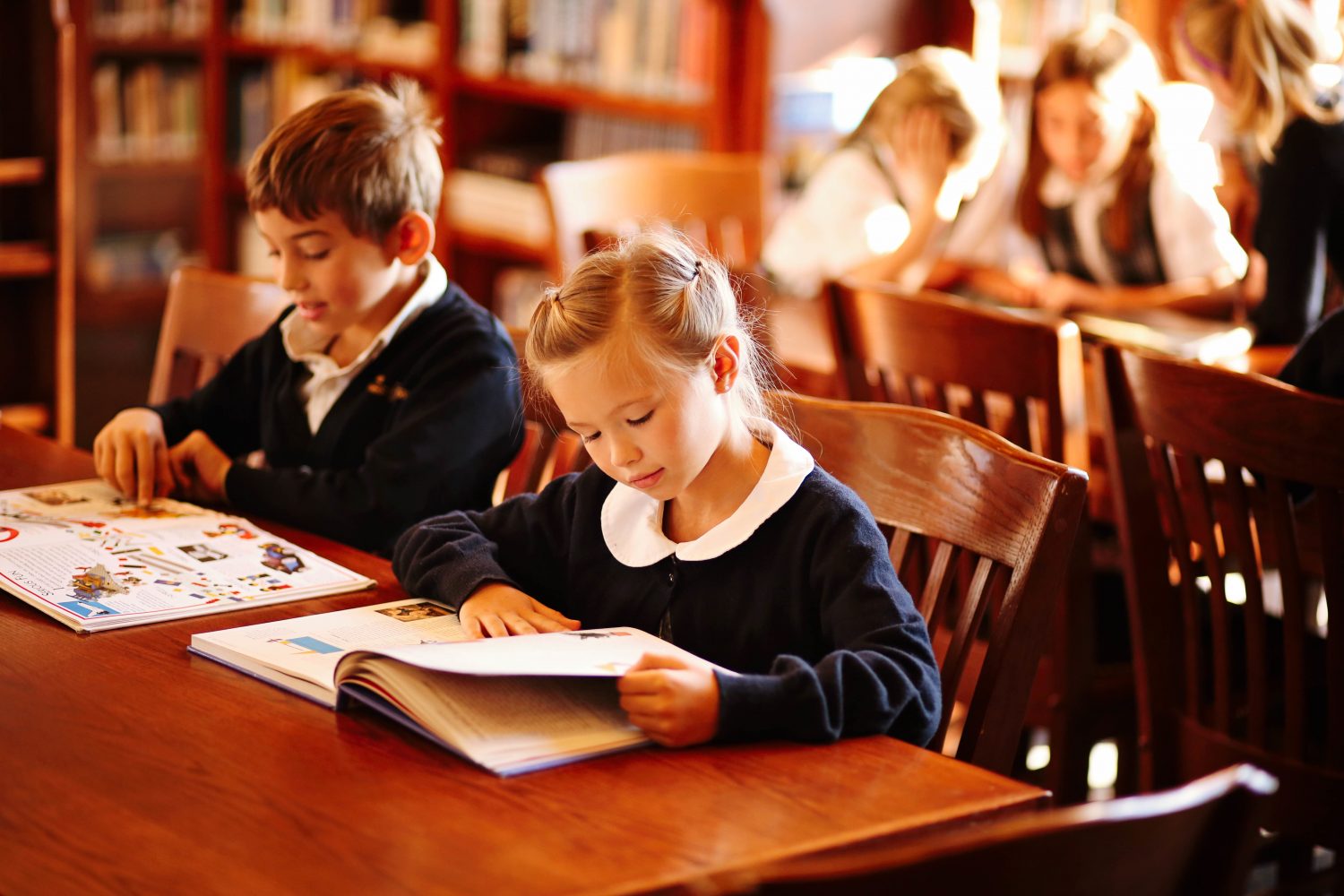
- Great Books: The Western canon from Homer to C.S. Lewis, read as close to the original as possible, is the core of our secondary education. Ad fontes (“to the source”) is a principle in CCE that values original sources over knowledge digested from textbooks. We encounter each work of art as an expression of some truth, goodness, and beauty. We evaluate each work in light of Christian truth.
- Great art, music, literature: You become what you behold. Consistent exposure to the greatness of Western culture (and some others) has a profound impact on the paideia. Regular exposure to and appreciation of great music and art in the classroom helps develop the student’s aesthetic sensibility. Classical and great church music are emphasized. Other, more recent forms, like jazz, may also be studied.
- History: We immerse students in the whole sweep of Western history, integrated with biblical and Christian history, from a young age. We emphasize human history and culture, not just geopolitical information. Integration with literature helps achieve this goal at some schools.
- Logic, science, and math: The second phase of the Trivium, logic, is also a core subject, typically taught in middle school. It is a bridge between language and subjects like math, philosophy, and science. Science is the study of God’s revelation in the natural world. Math reflects the language of God’s order in creation, and trains the student in logical thinking and attention to detail.
- Foundational skills: Handwriting, grammar, spelling, and math skills are practiced and mastered.
- Seven virtues: We begin with the seven virtues (Justice, Prudence, Temperance, Fortitude, Faith, Hope, and Love) that should mark a Christian community. To these, we add the many virtues taught in history and the Scriptures. We do this through story, habit, recitation, and community standards.
- Scripture: The Bible is not limited to a Bible class, but is integrated into all subjects as a tool to be memorized, studied, and understood. We view the Bible as God-breathed and inerrant. It is also literature, and interpreted as such.
The scholar has lived in many times and is therefore in some degree immune from the great cataract of nonsense that pours from the press and microphone of his own age.
– C.S. Lewis
- Marked by the gospel: We cultivate Christian paideia in an environment characterized by the grace of the gospel—at school and at home. First-century Greeks cultivated paideia, typically, through unforgiving schoolmasters who were about the business of bending the student into a virtuous person. Christian paideia is not brought to a student in this external way. Rather we cultivate it through a lived out gospel in the classroom. This gospel extends to who Christ is, who we are, and every aspect of life under His authority. These three define the ethos of our schools.
I am much afraid that schools will prove to be the great gates of hell unless they diligently labor in explaining the Holy Scriptures, engraving them in the hearts of youth.
– Martin Luther
- A community of learners: Rather than the posture of teachers as completed experts and students as absorbers of the teacher’s words, Classical Christian schools have a hierarchy of learning. The teachers are clearly researching and studying the great works as they disciple the students. Older students promote the pursuit of learning among younger students.
- Immersion and cultivation in the aesthetic arts: Beauty is in the eye of God, not the beholder. Our students practice and appreciate the arts, music, and poetry, which shape the soul to love higher things. While they do study some more recent works, these are often crafted with “expression of the artist” as ultimate, and are therefore often less beautiful. We use radiance, harmony, and integrity as measures of art.
- A beautiful and purposeful environment: CCE schools convey this artistic distinction as we decorate our facilities and train students. Rather than functionality, we center the school environment on beauty and purpose. Classroom décor pulls children up rather than appealing to a base desire for sensation and entertainment.
- Joyful rigor: Few worthwhile things come easily. We impart a work ethic that promotes joy as children accomplish great things, soli Deo gloria. Rigor, as we define it, is sustained attention to a worthwhile pursuit.
- Authority: Classical Christian schools model a world based on God’s authority. Authority flows from God and His word to churches, fathers, mothers, and the government, as God ordained it. And by extension, it flows to teachers and the school. Rather than insist on outward rule-compliance, we cultivate virtue through confession, repentance, and loving restoration within our Christian communities. This approach stands in contrast to common schools where a post-modern undertone of personal truth and egalitarianism inform the culture of the school.
